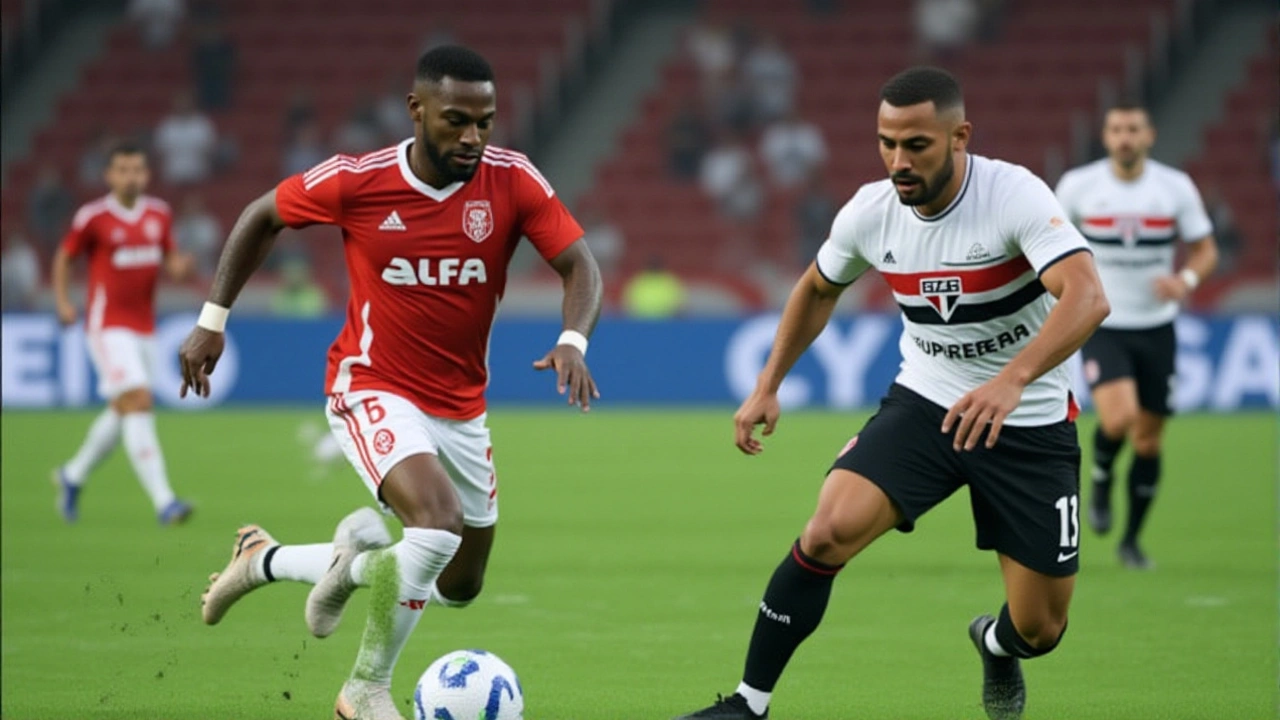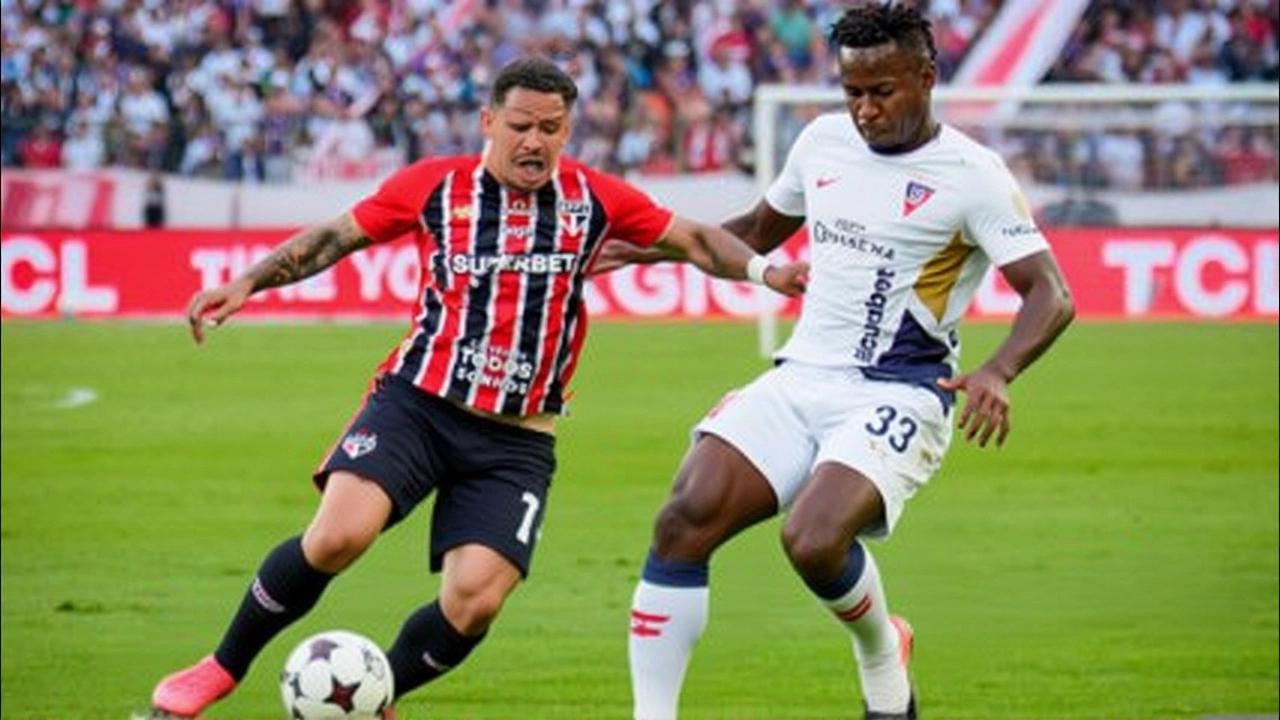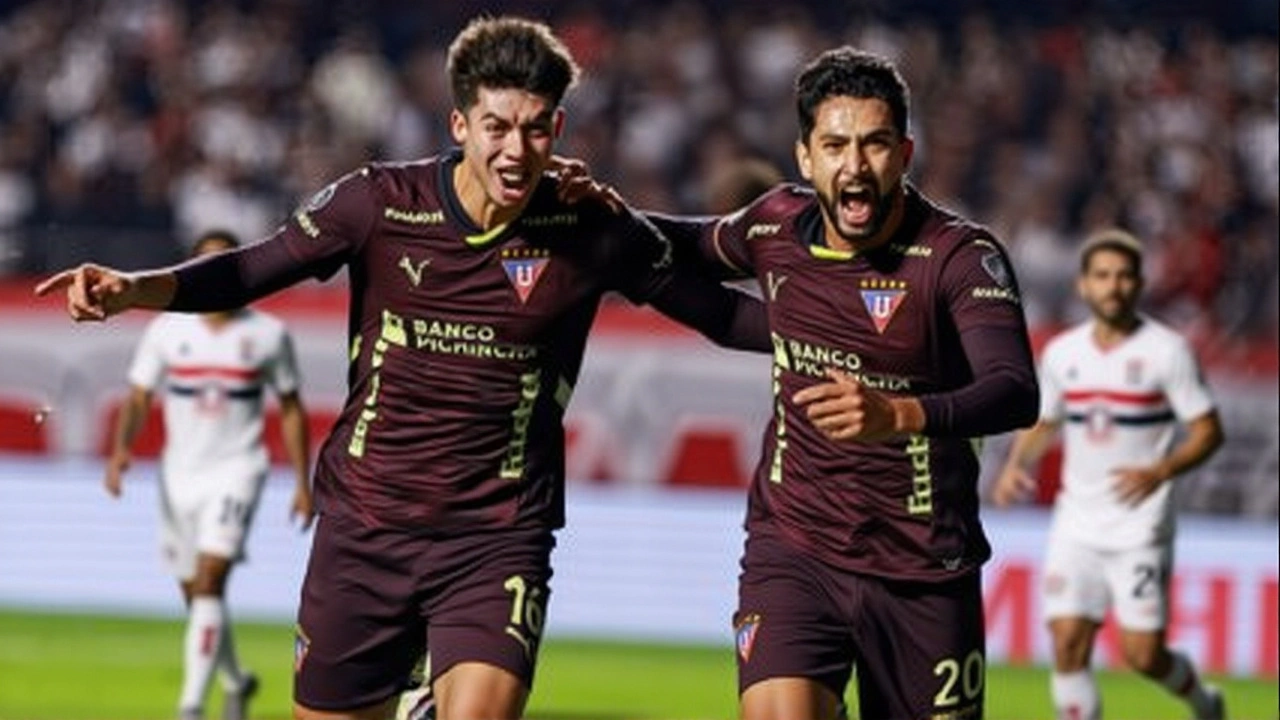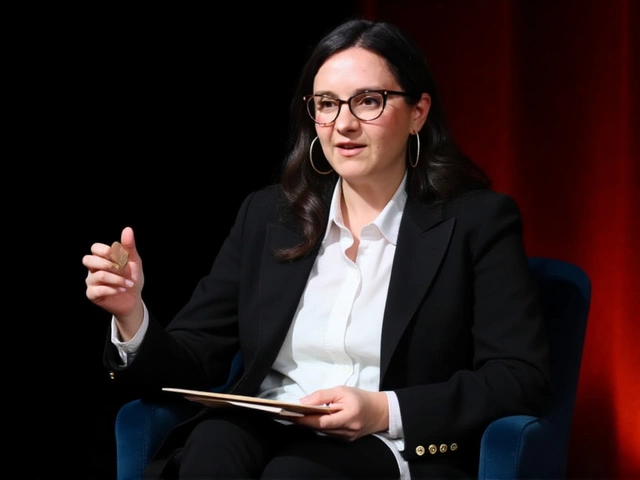When LDU Quito walked onto the turf of Estádio do Morumbí on September 25, 2025, the Ecuadorian side knew they weren’t just playing a match – they were chasing a dream that had slipped away 17 years earlier. A solitary Jeison Medina strike in the 41st minute proved enough to silence the Brazilian giants, sending the visitors through to the 2025 Copa Libertadores quarter‑finalsSão Paulo, Brazil semifinals with a 3‑0 aggregate.
Why this result matters
The win isn’t just a lucky night for an underdog; it reshapes the South‑American football map for the rest of the season. LDU Quito’s last semifinal appearance came in 2008, the year they lifted the Libertadores trophy. Since then, the club has hovered in the Europa‑like shadows of Argentine and Brazilian powerhouses. By crushing São Paulo FC, a team that has won three continental crowns, Quito has announced a return to relevance that could boost the entire Ecuadorian league’s marketability.
Game‑by‑game breakdown
First‑leg glory was already assured. LDU Quito entered the second match with a 2‑0 lead after a 2‑0 win in Quito on September 18. The Brazilian side, desperate to overturn the deficit, pressed from the first whistle. Possession stats tell the story – São Paulo held 58% of the ball but managed only three shots on target, compared with LDU’s five attempts, two of which forced the home keeper, Rafael (23), into a spectacular save at the 12‑minute mark.
Midway through the first half, Medina found space on the left flank, slipped the ball to Gabriel Villamíl, and slipped it back with a deft turn. The cross floated to the edge of the box where Medina met it with a half‑volley that curled past the outstretched arm of Rafael. The stadium fell silent; the Ecuadorians erupted.
São Paulo responded with a flurry of substitutions after the break – Maílton dos Santos for Alan Franco (22), Juan Dinenno for Damián Bobadilla (19), and Lucas Moura for forward Ferreira (7). The Brazilian coach, Dorival Júnior, urged his side to “leave nothing on the pitch,” but the effort was hampered by a disastrous off‑side call that nullified Luciano’s goal in the 68th minute.
Even a chaotic scramble in the penalty area, culminating in a collision between Luciano and LDU’s goalkeeper, only highlighted São Paulo’s growing frustration. In the final minutes, Carlos Gruezo blasted a left‑footed shot from just outside the box, only to see it curl wide. The whistle blew at 90+6 minutes – a defensive masterclass from Quito that kept the aggregate intact.
Voices from the pitch
“We knew we had to stay compact and hit on the counter,” said LDU Quito head coach Paolo Montero in the post‑match interview. “Jeison’s goal was a gift, but the real work was in the second half, when we turned defense into attack.”
São Paulo’s captain, Rafael Tolói, expressed disappointment: “It hurts to leave the tournament this way, especially after we gave everything. The referee’s decision on the off‑side was painful, but there’s no excuse for not converting the chances we had.”
Local analyst María Fernanda Gómez, who writes for *El Comercio*, added, “Ecuadorian clubs have often been written off in South‑American competitions. This victory changes the narrative and could attract better sponsorships for the league.”

What’s next for LDU Quito
Having booked their place, LDU Quito now prepares to face Brazilian juggernaut Palmeiras in the semifinals. The first leg is scheduled for October 9, 2025, at the Allianz Parque, with the return fixture set for October 23 at the Estadio Rodrigo Paz Delgado in Quito.
Palmeiras, coming off a strong domestic campaign and boasting a squad dotted with former Europe‑based stars, will be the ultimate test. LDU’s coach admits the challenge: “Palmeiras play a high‑press game, but if we keep our shape and strike on the break, we have a chance.”
Broader implications for South American football
The upset reverberates beyond the two clubs. For the CONMEBOL calendar, an Ecuadorian side in the semifinals could mean higher television ratings in the Andean region and a fresh market for future sponsors. Meanwhile, Brazilian clubs may reassess their squad depth – São Paulo’s early exit has already spurred rumors of a managerial shake‑up and a possible mid‑season transfer spree.
From a historical standpoint, LDU Quito’s run mirrors that of 2010’s Independiente Medellín, when a Colombian side stunned a favorite to reach the final. Those moments remind fans that the Libertadores, unlike European competitions, still harbors genuine “giant‑killing” potential.
Key facts at a glance
- Aggregate score: LDU Quito 3‑0 São Paulo FC
- Decisive goal: Jeison Medina, 41′
- Venue: Estádio do Morumbí, São Paulo (capacity 45,000)
- Attendance: 38,742 spectators
- Next opponent: Palmeiras (semifinals)

Frequently Asked Questions
How does LDU Quito’s victory affect Ecuadorian football?
The win thrust Ecuadorian club football into the continental spotlight, likely boosting sponsorship deals, TV rights values, and player scouting interest. It also provides a morale surge for domestic teams, proving they can compete with Brazil’s elite.
What were the key tactical changes São Paulo made after falling behind?
São Paulo switched to a more aggressive 4‑3‑3, introducing fresh legs – Maílton dos Santos, Juan Dinenno and Lucas Moura – to increase width and pace. Despite higher possession, they struggled to breach LDU’s compact, low block.
When and where will the semifinal clash with Palmeiras take place?
The first leg is set for October 9, 2025, at Palmeiras’ Allianz Parque in São Paulo. The return leg will be on October 23, 2025, at Quito’s Estadio Rodrigo Paz Delgado.
What does this result mean for São Paulo’s season?
The early Libertadores exit dampens São Paulo’s trophy hopes and may prompt a review of the coaching staff. It also affects the club’s financial projections, as continental prize money and broadcasting revenue will be lower.
Who were the standout performers for LDU Quito?
Beyond Medina’s winning goal, goalkeeper Gabriel Villamíl made two crucial saves, and defensive midfielder Carlos Gruezo helped control the midfield, breaking up São Paulo’s attacks.





